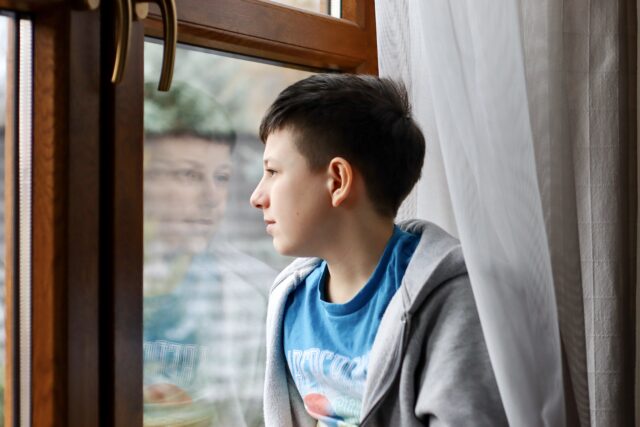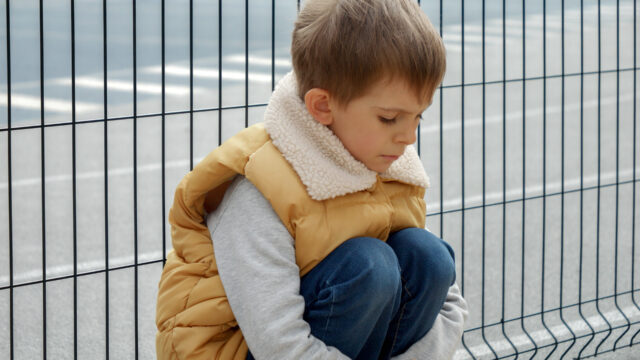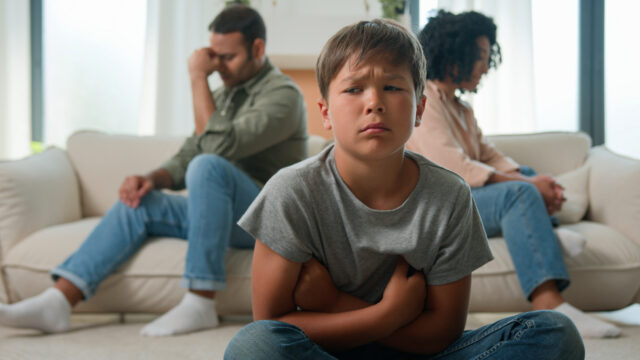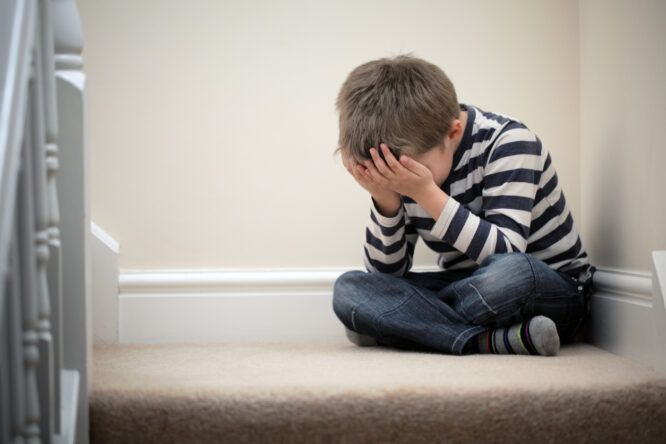When you grow up in a chaotic home—whether due to emotional instability, unpredictability, neglect, or high conflict—it definitely shapes the adult you become.

The patterns that helped you survive as a child don’t always translate well to adulthood. They show up in ways that can feel confusing or frustrating if you don’t connect the dots. But once you do, your struggles start to make sense, and with that understanding comes a lot more compassion. Here are some of the tough challenges many adults face that often have deep roots in a childhood that was a bit all over the place.
1. Struggling to relax even when things are fine

If you grew up in an environment where calm was always followed by a storm, then “peace” might actually feel suspicious or uncomfortable. You may find yourself waiting for something to go wrong, even when everything is objectively okay. That constant low-level tension is your nervous system staying on alert because it had to. You’re not broken; you were conditioned to stay ready. It takes time and practice to teach your body that safety doesn’t have to be temporary.
2. Overthinking every little decision

Chaotic homes often made kids responsible for outcomes they couldn’t control, so it’s no surprise that you might now agonise over every choice. You learned that getting it wrong might lead to anger, blame, or shame. As an adult, even simple decisions can feel high-stakes. You’re not indecisive because you’re incapable. You’re trying to prevent a crisis, even when there isn’t one.
3. Constantly second-guessing your feelings

If you were told you were “too sensitive” or had your emotions dismissed growing up, it makes sense that you’d learn to doubt yourself. As an adult, you might catch yourself checking how other people feel before deciding if you’re allowed to be upset. That habit didn’t come out of nowhere. You were trained to minimise your feelings in order to maintain stability around other people. Now, part of healing is learning that your emotions are valid, even when no one else is upset.
4. Being deeply uncomfortable with conflict

In chaotic households, conflict often felt unsafe—loud, unpredictable, and threatening. So now, even small disagreements can flood your system with anxiety. You might avoid confrontation altogether, even when you have every right to speak up. This isn’t weakness. It’s your body remembering what conflict used to mean. Learning to engage with tension calmly and safely takes time, especially if your earliest experiences were rooted in fear or survival.
5. Needing constant reassurance in relationships

If the love you received as a child was inconsistent or came with conditions, it’s natural to grow up craving confirmation that people actually like you, want you, or won’t leave. That doesn’t make you needy. In reality, it’s a response to emotional gaps that were never fully filled. The longing for stability doesn’t make you too much. It means your need for safety is finally trying to be met.
6. Feeling more comfortable in chaos than calm

For some people, chaos feels like home—not because they like it, but because it’s familiar. You may unconsciously create drama, take on too much, or jump into stressful situations simply because they feel “normal.” Peace can feel unnerving when you’re used to instability. That doesn’t mean you’re broken—it just means your system hasn’t learned what safety looks like yet. However, you can teach it.
7. Avoiding emotional closeness

Some people respond to childhood chaos by keeping their distance. If love or closeness once felt unsafe, you might now avoid vulnerability altogether, pulling away just as things start to feel real. This isn’t coldness; it’s self-protection. You’re not afraid of love, you’re afraid of what might follow it. Understanding that fear is the first step in slowly lowering the walls without forcing them down.
8. Struggling with self-trust

If you were gaslit or constantly told you were wrong as a child, you likely learned to doubt your instincts. As an adult, this might show up as chronic indecision, over-apologising, or feeling like you need permission to act. You weren’t taught to trust your own voice—you were taught to defer to other people for safety. Rebuilding that inner trust takes practice, but it starts with believing that your feelings have always had value.
9. Feeling responsible for other people’s emotions

In a chaotic home, you may have learned to read the room early because your safety depended on it. Now you might find yourself automatically fixing, absorbing, or soothing everyone else at your own expense. This is emotional hyper-responsibility, and it’s not your fault. But as an adult, it can lead to burnout and resentment. Your job is no longer to emotionally manage everyone—it’s to honour your own needs, too.
10. Avoiding asking for help at all costs

If your needs were dismissed or punished growing up, you may have learned to do everything alone. Now, asking for help might feel exposing or even shameful—even when you’re completely overwhelmed. Your self-reliance once kept you safe, but it can become isolating. Receiving support doesn’t make you weak. It gives you space to finally breathe in ways you never could as a child.
11. Struggling to feel “good enough”

When love and approval were conditional, you may have internalised the belief that you always have to do more, achieve more, or be better just to deserve basic kindness. Your sense of inadequacy doesn’t reflect who you are—it reflects what you were taught. You were never meant to earn love through perfection. You’ve always been enough without the performance.
12. Feeling overstimulated by everyday life

Constant noise, decisions, or demands might overwhelm you more than they seem to affect other people. That’s often because your nervous system has been running on high alert for years. This isn’t just being “sensitive.” It’s your body trying to recover from years of unpredictability. Learning to pace yourself and prioritise quiet time is the opposite of selfish—it’s necessary for regulation.
13. Avoiding pleasure or joy because it feels unsafe

If joy in childhood was often followed by disappointment, punishment, or emotional withdrawal, then you might find it hard to relax into happiness now. Pleasure can trigger guilt or discomfort instead of ease. This response makes sense when your nervous system has linked joy with danger. You’re not sabotaging yourself on purpose—you’re trying to stay safe. Slowly teaching your body that happiness is allowed can change everything.
14. Being hyper-independent in relationships

If relying on other people used to lead to hurt, you may have learned to do everything yourself—emotionally, logistically, or even financially. Independence became your survival tool. However, in adulthood, this can create distance in close relationships. Letting people in doesn’t mean giving up your strength. It means learning that mutual support can be safe, not threatening.
15. Struggling to identify what you need

When your needs were ignored or punished, you may have learned to disconnect from them entirely. Now, you might find it hard to name your preferences, wants, or even basic feelings in the moment. That doesn’t mean you’re disconnected—it means you were trained to focus outward, not inward. Reconnecting with your needs is a process, and every small step is a win.
16. Feeling like you’re “too much” or “not enough”

In a chaotic home, you may have been made to feel like your emotions were excessive, or like your best efforts were never quite right. That dual message can leave you oscillating between shame and overachievement. As an adult, this might look like holding back in fear of taking up space—or overcompensating to feel worthy. You don’t need to shrink or over-deliver. You were always enough, exactly as you are.
17. Questioning why things that feel hard for you seem easy for other people

You might look around and wonder why other people seem so confident, calm, or relaxed about things that feel overwhelming to you. However, if you never had the foundation other people did, you’re not behind—you just had a different starting line. Your struggles make perfect sense in context. And the fact that you’re here, even reading this, says more about your strength than anything that ever happened in your past.




